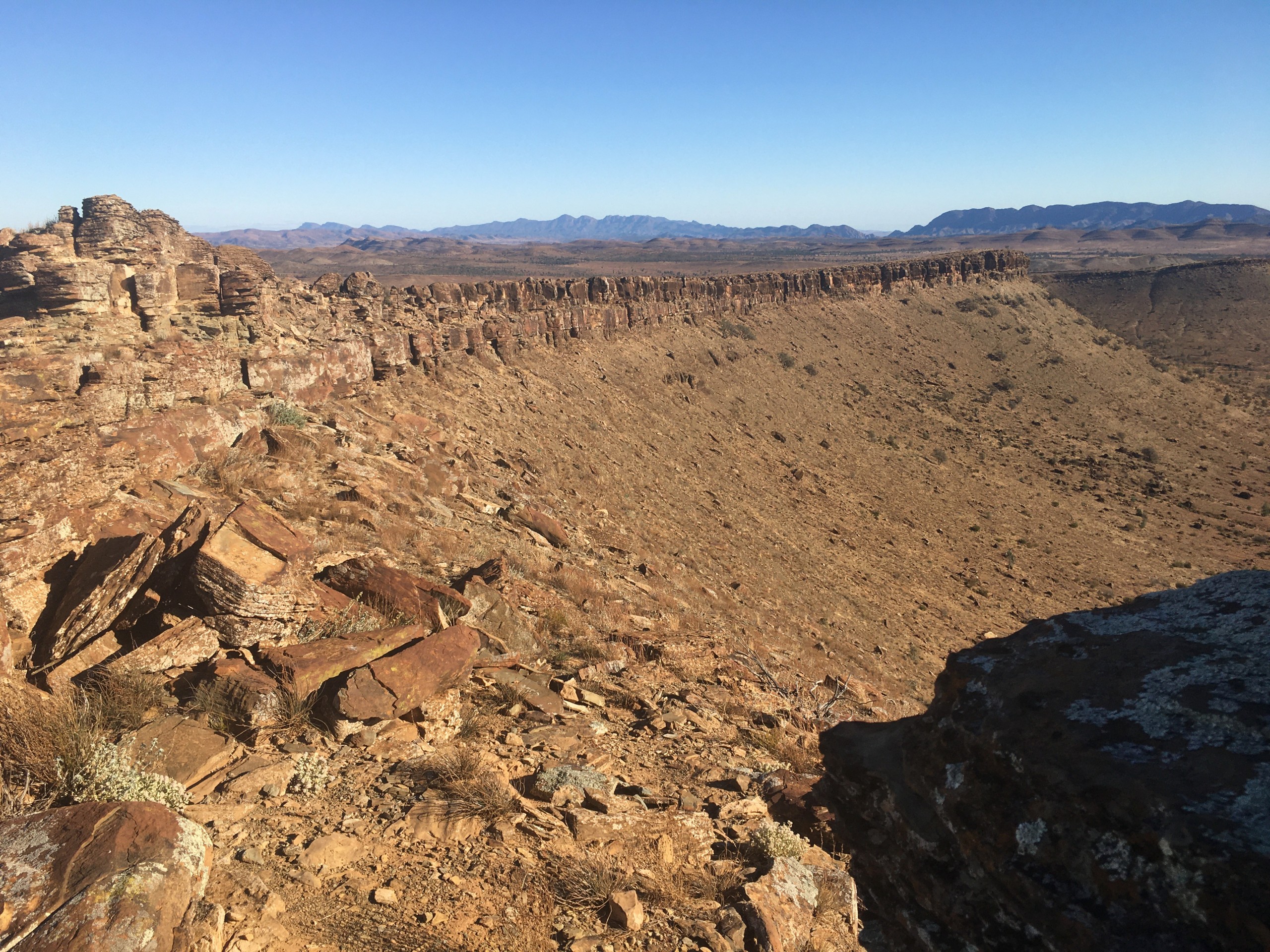Over the last month we’ve had the good fortune of being in some of the most breathtaking and remote locations in South Australia’s Ikara-Flinders Ranges with two groups of leaders on our Ikara-Ediacara: Past, Present and Future Leadership Experience.
Our journey was one of reconnecting with the past: 30,000-year-old petroglyphs created by First Nations peoples on canyon walls and intact Ediacara fossil beds over 500 million years old. It was about understanding how some of the present First Nations traditional owners and pastoralists are working together as custodians of the land. It was also about exploring the future as the whole environment and climate changes, as hardship and resilience meet innovation and love of country.
When we stand in the history, space and time offered by this country and its people, many of our ‘first world’ problems, such as not having constant access to the internet, or listing the pros and cons of the next career move, tend to pale into insignificance. Exploring our own leadership challenges and those of our colleagues became more than simply having a conversation or offering suggestions or actions.
To listen to the stories of the custodians without knowing and judging, to experience their connections and commitment, their desires and hardships, their wishes and passions – these enabled us to come closer and ask of ourselves, ‘How are were truly feeling?’, not just about our own challenges but also those faced by these local leaders.
The ability to literally ‘ground’ ourselves in the riverbeds, on rocky outcrops, on treeless plains, in fossil fields and on red sandhills allowed each of us to come closer to asking and sensing, ‘What do I deeply need?’ in relation to our challenges, as well as those of the people we met. That awareness, or ‘gut knowing’, really came to the fore for many of us in this space, with our normal reliance on data or information to make an informed decision having a significantly lesser role.
With both the heart centre and body centre so available, many of the group also noticed a genuine desire to ‘sit’ with the experiences they were in and allow the situations to unfold. This struck a contrast with the more typical reaction in our busy urban lifestyles to identify definitive solutions or recommend specific actions as quickly as possible.
Encouraging the group to play with the question, ‘What do I really think?’ rather than ‘What do I think’ also enabled them to access greater insight into what was possible.
Now I imagine that many of you reading this might be saying ‘Well, that’s all well and good. I can’t head into the outback, so what can I do right here and now with the challenges I am facing?’
There are ways, as I touched on in my last post, that we can connect with our centres in our current environment, whatever form that takes.
You can reconnect with your body centre simply by placing two feet on solid ground or walking intentionally. You can connect with your heart centre by placing a hand on your chest or listening to a significant piece of music. And you can connect to your head centre by letting go of any distractions (e.g. your phone or other screen, large or small) and closing your eyes.
In addition, you can explore the three very important questions we introduced during our time away by reading the article ‘Neuroscience and the Three Brains of Leadership’ by Grant Soosalu and Marvin Oka. Don’t hesitate to contact us for more of a conversation on this important topic – we are only a virtual cup of coffee away.
None of these will get you to Ikara, however all three will certainly support you in reconnecting to yourself in the moment. If you can manage to do any of them outside, with a view of the horizon, the impact will be even stronger.
Gayle


Good reading, thanks Gayle. So important to keep a perspective. A good read on this subject and others Im enjoying at the moment is Robert Dessaix’s: ‘The Time of Our Lives’.